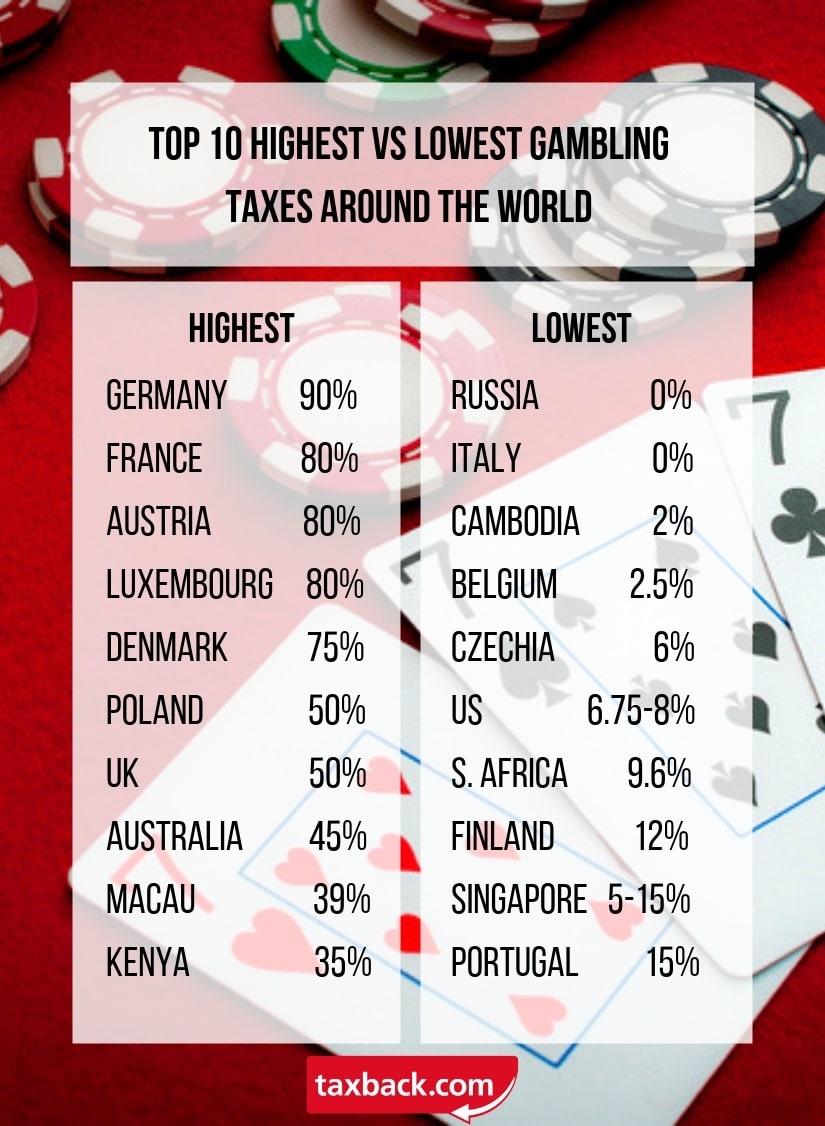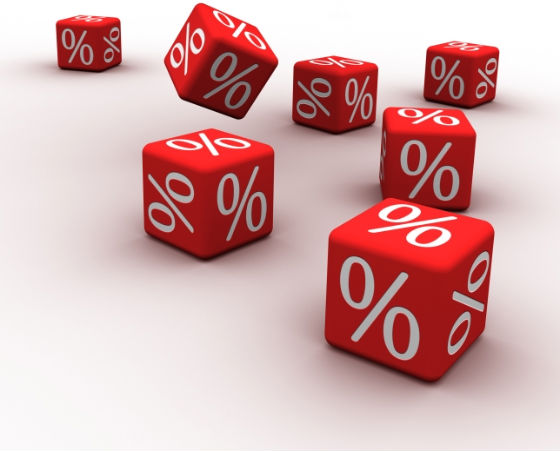All countries and governments have their own online gambling tax policies and legislation so we need to look at this question from a global perspective. Firstly we’ll cover the situation in the UK and following that look at how things may differ in the rest of the world.
- Can You Get Taxed On Gambling Winnings Online
- Can You Be Taxed On Gambling Winnings
- Can You Get Taxed On Gambling Winnings 2017
Mar 28, 2019 You don’t have to drop by a casino or a race track to bet on sports, either. Gamblers can take home winnings after fantasy football games, office parties, and Saturday night poker. That cash isn’t necessarily free and easy, however. Gambling winnings, just like any other income, are taxed in the United States. Gambling winnings are subject to withholding for federal income tax at a rate of 25% when you win more than $5,000 from sweepstakes, wagering pools, lotteries, or other wagering transactions, or anytime the winnings are at least 300 times the amount wagered. If tax is withheld from your gambling winnings, you will be sent a W2-G form from the payer. Gambling Losses. You may deduct gambling losses if you itemize your deductions. You can deduct your losses only up to the amount of your total gambling winnings. You must generally report your winnings and losses separately, rather than reporting a net amount.
Do you have to pay tax on your gambling winnings?
UK Gambling Taxes
All winnings either online or offline are tax free!
Any betting tax abolished in 2001 by Gordon Brown.
Tax used to be on bookies but they passed to punters.
Bookmakers must now pay 15% POI tax but not punters.
POI tax on any games of chance increased from 15% to 21% but again not for punters.
In the UK any and all winnings from gambling – either online or at betting shops – are entirely tax free and do not need to be declared as part of any tax return.
This has been the case since the then Chancellor of the Exchequer Gordon Brown’s budget of 2001, when he abolished Betting Duty which had stood at 6.75%. That duty was removed in an attempt to persuade bookmakers not to move their operations overseas and therefore take jobs and revenue away from the UK economy.

All of that is not to say that there is no tax involved when it comes to gambling in the UK, however, and there is a ‘point of consumption’ tax related to the activity. This does not affect punters themselves, though, and will be dealt with separately further down this page.
Will the situation ever change? Generally speaking there is little chance that this situation will be reversed, either, as the UK tax system is simply not built in such a way that taxing gambling winnings would be viable. This is the case as it is fairly standard within the system that if tax is levied on the income or profit made through an activity, then there must also be an allowance made against losses through the same activity.
With gambling being an activity where overall more losses are made by punters than winnings, therefore, such a change in the tax legislation would cost the UK government revenue. As a result, it is quite simply not something which would be considered. Your betting, casino, slot machine, poker and bingo winnings are yours to keep tax free.
Can You Get Taxed On Gambling Winnings Online
What About Professional Gamblers?
It may seem logical that the tax situation would be different for professional gamblers than it is for occasional punters. When it comes to pure winnings from betting, however, that quite simply is not the case. As we have discussed above these winnings are not taxable and this remains true even for a ‘professional gambler’. That is because HMRC do not recognise professional gambling as a taxable trade.

In fact, within their most up to date ‘Business Income Manual’, HMRC clearly define their position on professional gambling:
‘The fact that a taxpayer has a system by which they place their bets, or that they are sufficiently successful to earn a living by gambling does not make their activities a trade.’ BIM22017
Gambling winnings, therefore, remain free of tax regardless of whether they make up an individual’s main source of income. Where the situation can get a little more complicated, however, is in the case of income related to gambling but not actually direct winnings from gambling. Appearance fees paid to poker players for playing at certain tournaments, for instance, represent payment for a service provided to the tournament organisers and as such may be taxable.
Away from the UK, too, tax laws and legislation do differ and it would benefit a professional gambler outside of the UK to research the specific rules and regulations within their own country.
UK Point of Consumption Tax
As we mentioned earlier, Betting Duty for gamblers was abolished in 2001 and was at that time replaced by a 15% tax on gross profits for bookmakers and gambling providers. That tax was initially charged on a ‘point of supply’ basis, meaning that if the bookmaker or company were not based in the UK, then they were not liable. This situation has more recently changed, however.
From the latter part of 2014, the tax on bookmakers’ profits was changed to a ‘point of consumption’ tax by a combination of the Gambling (Licensing and Advertising) Act 2014 and by the introduction of ‘Remote Gaming Duty’. This means that regardless of where they themselves are based, providers must pay a 15% duty on any bets placed by UK customers.
Can You Be Taxed On Gambling Winnings
In the 2018 budget chancellor George Osborne announced that the point of consumption tax would rise from 15% up to 21% for all games of chance but sports betting would remain at 15%, for now.
Gambling Taxes In The Rest Of The World
| Country | Tax On Winnings |
|---|---|
| Austria | No |
| Australia | No |
| Australia | No |
| Belgium | No |
| Bulgaria | No |
| Canada | No |
| Czech Republic | No |
| Denmark | No |
| Finland | No |
| France | 2% on poker cash pots, 7.5% on sports (+1.8% levy) and 7.5% on horse racing (+8% levy) |
| Germany | No |
| Greece | No except lottery at 10% |
| Hungary | No |
| Ireland | Bookies pay 1% on all bets – not winnings. |
| Italy | No |
| Kenya | No – bookies must pay 7.5% on their winnings. |
| Latvia | 25% |
| Luxembourg | No |
| Macau | 40% |
| Malta | No |
| Nigeria | 20% |
| Netherlands | No expect lottery at 29% above €454 |
| Portugal | No expect lottery at up to 35% |
| Romania | 1% up to 66,750 RON, additional 16% of surpassing margin up to 445,000, additional 25% of surpassing margin over 445,000 RON |
| Slovenia | No expect lottery at 50% if more than €4,000 |
| Spain | No but must declare winnings as income for taxation |
| Sweden | No |
| South Africa | No except 6% on horse racing. |
| United Kingdom | No |
| USA | 25% |
As the above table shows, where various types of gambling are legal there are a variety of different attitudes towards taxation on winnings from those forms of betting. If your country is not listed then it’s likely gambling is not strictly legal and there is therefore no taxation laws.
If you lose money gambling, you might be able to deduct it on your tax returns. However, before you can claim the deduction, you'll have to meet two important requirements. First, the IRS will want you to itemize all of your deductions. Second, you can only deduct gambling losses to the extent that you have gambling winnings.
Claiming the Gambling Deduction
The way that you claim the gambling deduction is relatively simple. First, you have to file Schedule A and itemize your tax deductions. This means that you can't claim the standard deduction, but you can write off expenses like your state income tax, mortgage interest, property taxes, car registration tax and charitable donations. If you have gambling losses, you write them off as 'other miscellaneous deductions' on line 28 of Schedule A, where they get combined with your other itemized deductions to reduce your taxable income.
Deduction Rules
The IRS will only let you deduct losses to the extent that you win. For instance, if you lose $3,000 on one trip to the casino and win $2,100 on another trip in the same year, you can write off $2,100 in losses to offset the $2,100 in winnings, leaving you with a total of $900 of taxable gambling income. If you lost $1,000 on one trip and won $9,500 on another, though, you could claim the entire $1,000 in losses to reduce your net income from gambling to $8,500.
Proving Your Gambling
If you claim a gambling loss deduction, you will have to prove that you are entitled to it. Casinos send a form W-2G when you win to let the IRS know that they paid you, but it's up to you to establish your losses. The IRS requires you to keep tickets or receipts and a diary of your winnings and losses to substantiate your deduction. If you can get a printout from the casino of your gambling activity, such as if you use a player's club card, it may be helpful.
Professional Gambling
The rules for professional gamblers are different. A professional gambler makes a business out of gambling. He can write off his gambling losses and any expenses that he incurs for gambling -- like travel -- to offset gambling income. Since gambling is a business, he would file a Schedule C to report his income and expenses and would also have to pay self-employment taxes on his profits.
Video of the Day

References
About the Author
Steve Lander has been a writer since 1996, with experience in the fields of financial services, real estate and technology. His work has appeared in trade publications such as the 'Minnesota Real Estate Journal' and 'Minnesota Multi-Housing Association Advocate.' Lander holds a Bachelor of Arts in political science from Columbia University.
Photo Credits
Can You Get Taxed On Gambling Winnings 2017
- John Howard/Digital Vision/Getty Images